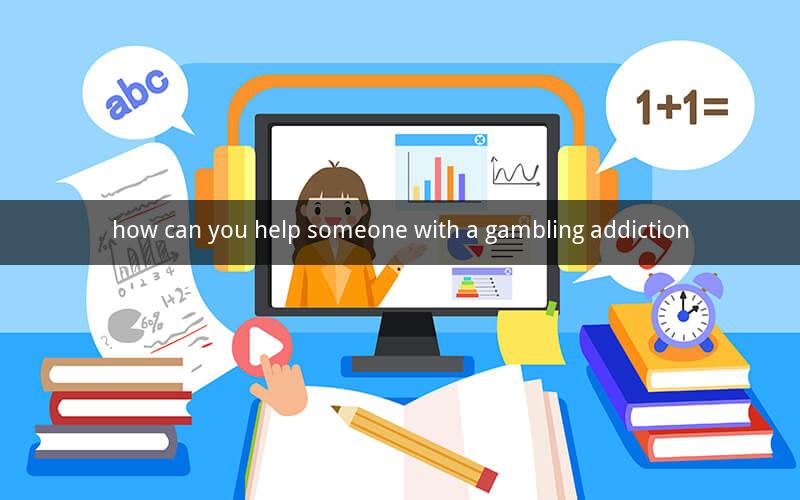
Table of Contents
1. Understanding the Problem
2. Identifying a Gambling Addiction
3. Communicating with the Addict
4. Encouraging Professional Help
5. Setting Boundaries
6. Supporting during Recovery
7. Educating Yourself
8. Coping with Relapse
9. Seeking Support
10. Conclusion
1. Understanding the Problem
Gambling addiction, also known as gambling disorder, is a serious condition that can have devastating effects on an individual's life. It is characterized by an inability to control gambling behavior, despite negative consequences. Recognizing the signs of a gambling addiction is crucial for offering the right kind of help.
2. Identifying a Gambling Addiction
One of the first steps in helping someone with a gambling addiction is to identify the signs. These may include:
- Increasing time spent gambling
- Lying about gambling activities
- Borrowing money to finance gambling
- Missing work or school due to gambling
- Feelings of shame, guilt, or remorse after gambling
- Trying to stop or control gambling without success
3. Communicating with the Addict
Open and honest communication is key to helping someone with a gambling addiction. When approaching the subject, consider the following tips:
- Choose a quiet, private setting
- Express concern rather than anger or judgment
- Use "I" statements, such as "I'm worried about you"
- Listen actively and without interruption
- Avoid placing blame
4. Encouraging Professional Help
Seeking professional help is crucial for someone with a gambling addiction. Suggest the following resources:
- Therapists specializing in gambling addiction
- Support groups, such as Gamblers Anonymous
- Treatment centers offering residential or outpatient programs
- Financial counseling to address gambling-related debt
5. Setting Boundaries
Setting boundaries is an essential part of supporting someone with a gambling addiction. Consider the following strategies:
- Establish ground rules regarding financial matters
- Monitor the individual's access to gambling opportunities
- Encourage healthy coping mechanisms, such as exercise or hobbies
- Maintain open communication about the individual's progress
6. Supporting during Recovery
Supporting a loved one through recovery is vital. Here are some ways to provide assistance:
- Attend therapy sessions or support group meetings
- Encourage the individual to follow their treatment plan
- Offer emotional support and empathy
- Be patient and understanding during setbacks
7. Educating Yourself
Understanding the nature of gambling addiction can help you offer more effective support. Consider the following resources:
- Research articles on gambling addiction
- Books about gambling addiction and recovery
- Workshops or webinars on the subject
- Support group meetings for family and friends
8. Coping with Relapse
Relapse is a common part of the recovery process. When it occurs, consider the following steps:
- Remind the individual of their progress and the reasons for seeking help
- Encourage them to return to therapy or support groups
- Avoid placing blame; instead, focus on solutions
- Continue offering support and understanding
9. Seeking Support
Taking care of yourself while supporting someone with a gambling addiction is essential. Here are some ways to seek support:
- Attend support groups for family and friends of gambling addicts
- Speak with a therapist or counselor specializing in gambling addiction
- Connect with other individuals who have experienced similar challenges
- Prioritize self-care, such as exercise, healthy eating, and adequate sleep
10. Conclusion
Helping someone with a gambling addiction requires patience, empathy, and understanding. By following these steps, you can offer the necessary support to help them overcome this challenging condition.
FAQs
1. What are the signs of a gambling addiction?
2. How can I approach the subject of gambling addiction with my loved one?
3. What types of professional help are available for someone with a gambling addiction?
4. How can I set boundaries to support someone with a gambling addiction?
5. What can I do to support someone during their recovery process?
6. How can I educate myself about gambling addiction?
7. What should I do if my loved one relapses?
8. How can I seek support for myself while supporting someone with a gambling addiction?
9. How long does it take to recover from a gambling addiction?
10. Can someone with a gambling addiction be cured?